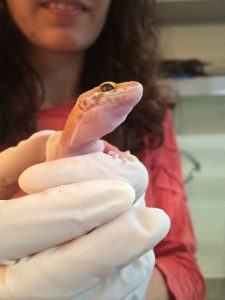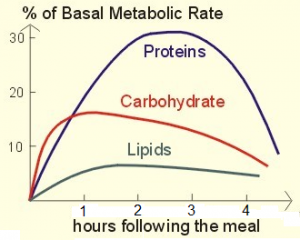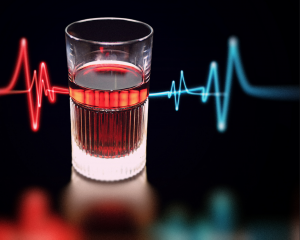
Source: Dr. Theresa Grieco, UBC
As the most important component of eating, teeth are organs that are vital to a wide variety of species, including mammals, reptiles, and insects. Odontogenesis, which is the process of tooth replacement, is something that occurs in humans only once in a lifetime, yet this process varies between organisms. Reptiles, specifically geckos, shed and replace their teeth once a month, which is something that is not commonly known by the general public. It is this characteristic of a gecko that make them the ideal research animal for studying tooth replacement. The leopard gecko, and its unique features, are discussed in the podcast below, with the help of researcher Dr. Theresa Grieco.
University of British Columbia’s Dr. Theresa Grieco conducted a research study on odontogensis in leopard geckos, a relatively uncommon study animal. From the study, the main finding was that odontogensis is a process that is predetermined in the embryo, and continues naturally in an adult. The video below describes Dr. Grieco’s study, and its applications to the research community.
Dr. Grieco’s study has contributed a significant amount of information to the field of odontogenesis. The results of this study, which have laid down a foundation for future research, will eventually have valuable interpretations in humans.
In terms of future research, Dr. Grieco plans to perform surgeries that have yet to be done by researchers, as there are many unanswered questions surrounding tooth replacement. As stated by Dr. Grieco, what the tooth replacement “cycle is actually made up of is still what we are trying to figure out.” From this, researchers can determine the importance that each step holds in the cycle of odontogenesis in geckos.

Source: Dr. Theresa Grieco, UBC
However, more importantly, this research has the potential to enhance understanding of human tooth, and organ regeneration. As mentioned in the study, “there is going to be a bridge at some point” between the findings on geckos, and human teeth. Specifically, Dr. Grieco states that her study serves as a basis to determine whether morphological clues and common tooth patterns (similar to those found in geckos) will be found in humans, and if these can be used to discover a way for humans to re-grow their teeth too.
This aspect of science research is minor, but has many implications and benefits, and as Dr. Grieco states, “I don’t think I’m learning everything about life, but I’m definitely helping.”




